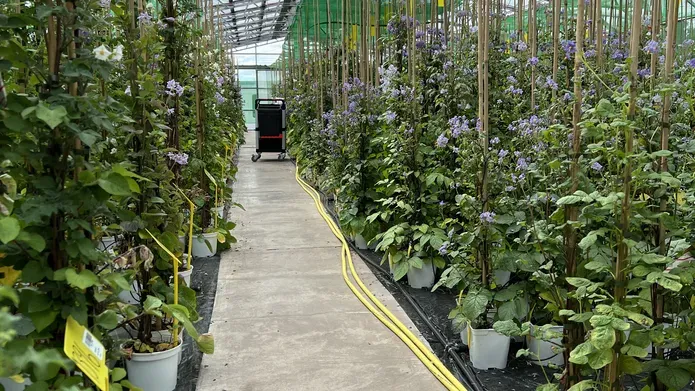News
International potato study helps create new, pathogen resilient varieties
Potato is the third most important food crop in the world and consumed by over a billion people. Pathogens can destroy entire crops and thereby threaten food security.
Published on 5 January 2023

Approximately 30% of global potato production is lost to diseases. A collaborative Global Challenges Research Fund (GCRF) project led by Dr Ingo Hein with the International Potato Centre (CIP) and James Hutton Limited (JHL) has resulted in the successful development of new, disease resistant potato varieties for international use.
Dr Ingo Hein, Joint Head of Potato Research and Deputy Head of CMS Department at the James Hutton Institute and Reader in the Division of Plant Sciences at the University of Dundee
“The breeding of resistant potato varieties will significantly improve food security. Moreover, by prioritizing environmentally benign pathogen control through the effective deployment of disease resistance genes in new varieties, fewer agrochemical applications are required. This makes potato production more sustainable, cost-effective, and less harmful to the environment and farmers.”
The GCRF award brought together expertise and reach to provide real world impacts of the research. CIP is part of CGIAR (the Consultative Group on International Agricultural Research), and services potato production in many official development assistance (ODA) countries in South America, Africa, and Asia. The reach of CIP in these countries includes more than 2 million smallholders.
Philip James Kear, chief scientist of the International Potato Center (CIP) -China Center for Asia and the Pacific (CCCAP) said, “I am pleased to say that this data has positively influenced our breeding decisions and targets. We certainly didn’t expect the results to be so positive.”
Professor Paul Birch, Head of the Division of Plant Sciences at University of Dundee